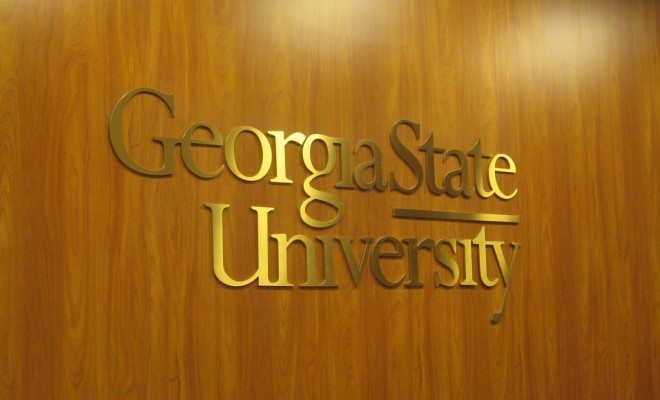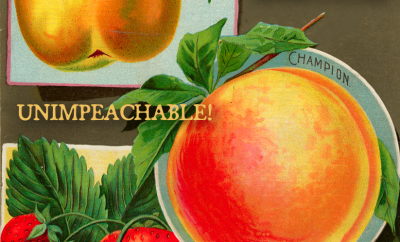 Image courtesy of [Courtney McGough via Flickr]
Image courtesy of [Courtney McGough via Flickr]
IP & Copyright
Publishers Appeal Win in Georgia State University Copyright Law Case
Earlier this month, book publishers appealed their Eleventh Circuit Court of Appeals win against Georgia State University in a closely watched copyright case. In a surprise to many, the publishers have requested that their case be heard en banc, which means that a case is heard before all the judges of a particular court–in this case the Eleventh Circuit.
The publishers have asked for an en banc hearing based on what they argue was the Eleventh Circuit’s faulty analysis and alleged errors. According to Publishers Weekly, “two of the three judges in the unanimous opinion ‘contradicted Supreme Court and Eleventh Circuit precedent.'” Tom Allen, President and CEO of the Association of American Publishers, added that the request is pivotal because of “the vibrant educational publishing market that develops and provides quality content for students and teachers is at stake.”
The events that facilitated the lawsuit against Georgia State University date back to 2008. Three publishers–Cambridge University Press, SAGE Publications, and Oxford University Press–claimed that Georgia State University made thousands of their works available online through Georgia State University’s e-reserves, where students could print and download the works for free without seeking the copyright holder’s permission. The three publishers then sued four university officials of Georgia State University for direct, vicarious, and indirect copyright infringement.
In 2009, Georgia State University changed its copyright policy, where each professor who wanted to post a copyrighted material or excerpt of copyrighted material on its e-reserves would have to complete a fair use checklist to see if the professor’s proposed use qualified.
In 2010, a federal Georgia court held in favor of Georgia State University because there was not enough evidence to prove that the defendants engaged in copyright infringement. In particular, the four fair use factors–the purpose and character of the work; the nature of the copyrighted work; the amount and substantiality taken of the work; and the effect of the use on the potential market–favored Georgia State University because the purpose of the excerpted works was educational and non-commercial, the nature of the works was scholarly, a small amount of each excerpted work was taken, and there was little effect on the potential market of the excepted works.
Last month, however, the Eleventh Circuit reversed and ruled in favor of the publishers. Although the publishers won, insiders noted that the Eleventh Circuit rejected the publishers’ main arguments and remanded the case to the district court.
You may have wondered in the past how professors and teachers were able to print and distribute excerpts of copyrighted works in their classrooms without a license. The answer is fair use. To claim fair use, a particular use has to pass the aforementioned four-factor test. No factor carries considerably more weight than the other.
However, not every use is a fair use, and thus, not every excerpt that a teacher or professor uses counts as fair use (for instance, it would likely not be fair use if a professor or teacher printed and distributed packets to students that contained 3/4 of “To Kill a Mockingbird” because the amount taken of the work would likely be too much, despite the non-commercial purpose and scholarly nature of the excerpted work).
This case is extremely important because it will immediately impact the classroom and determine what teaching tools and materials can be freely used. Moreover, according to The Chronicle of Higher Education, there is also a similar case pending against the University of California, Los Angeles.
These two cases have the ability to determine the future of higher education.








Comments